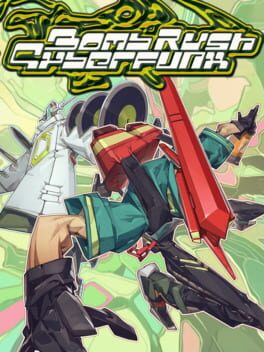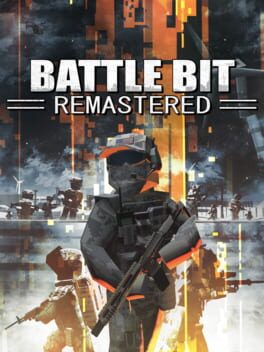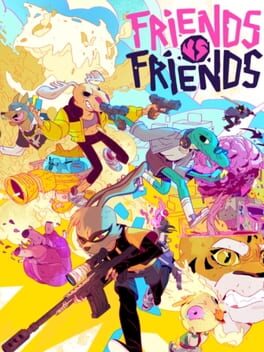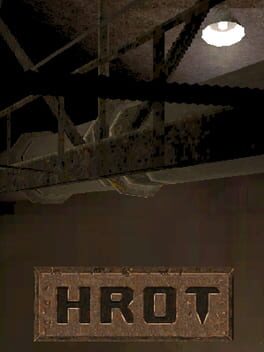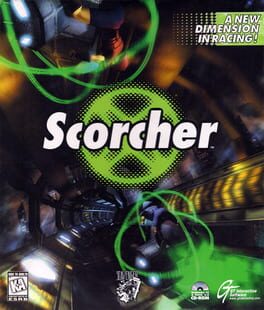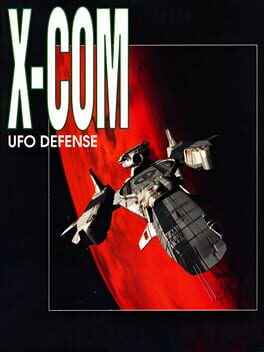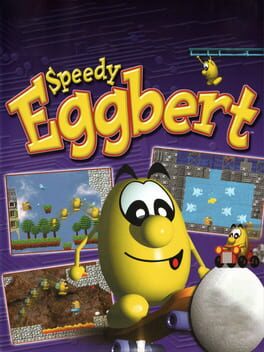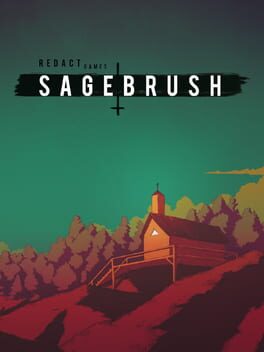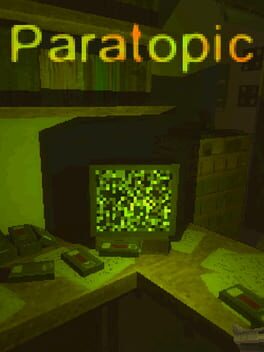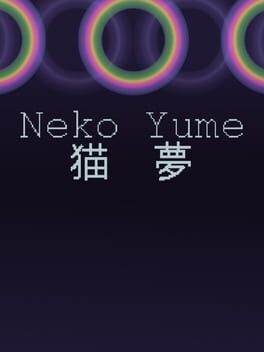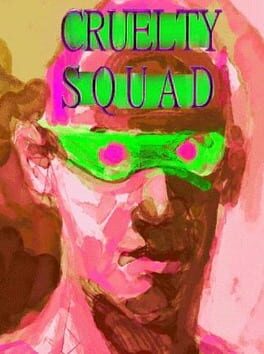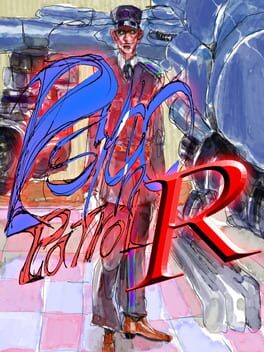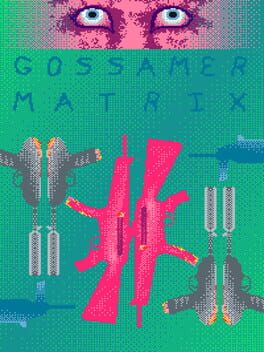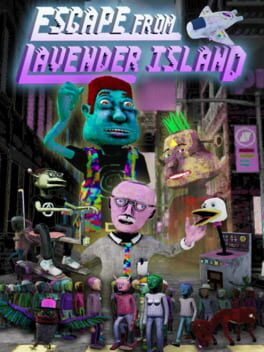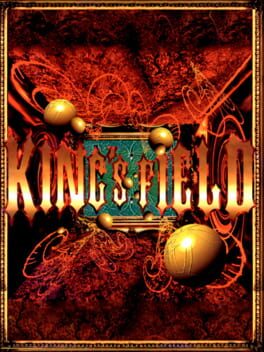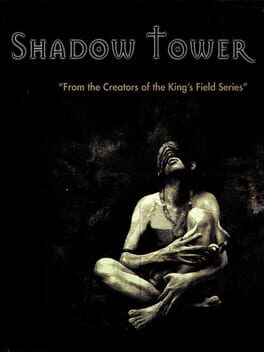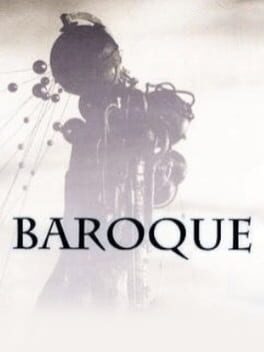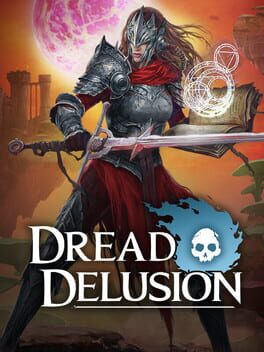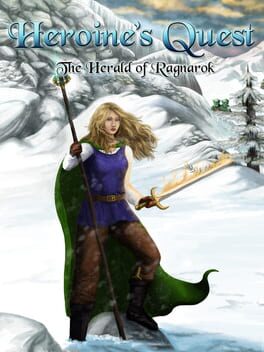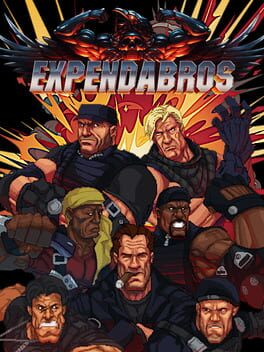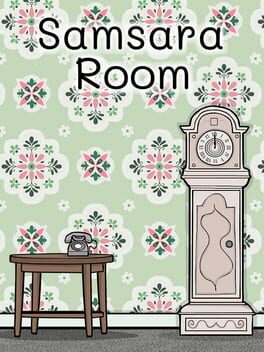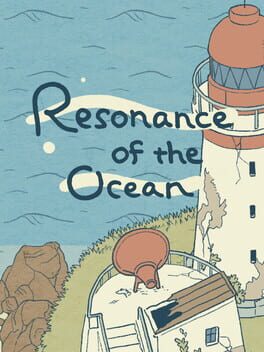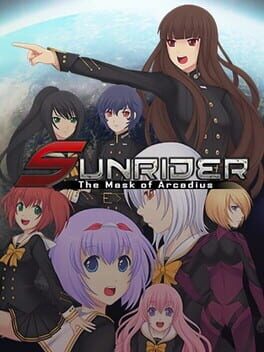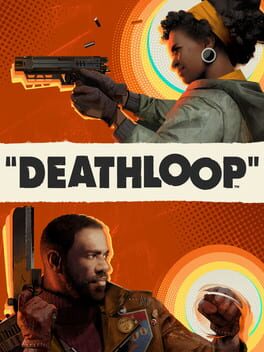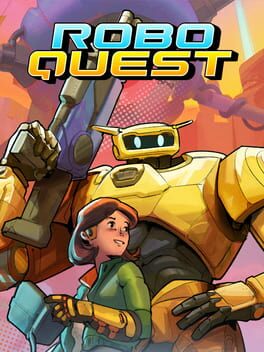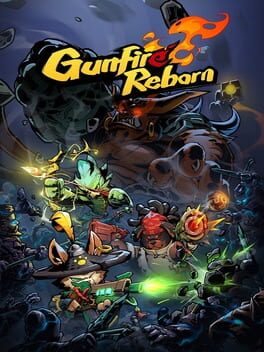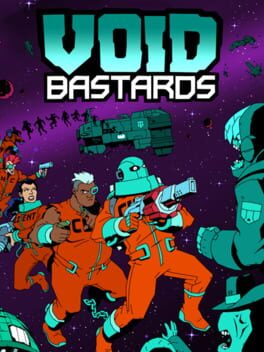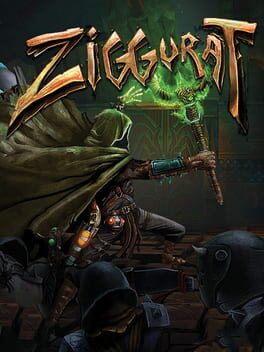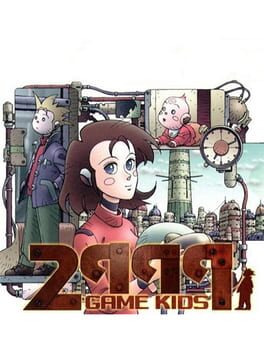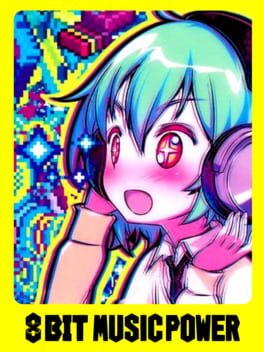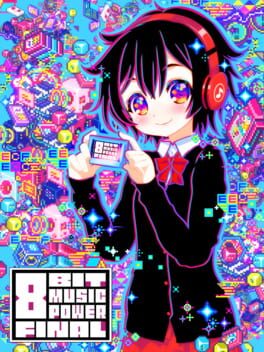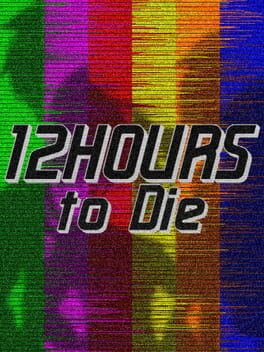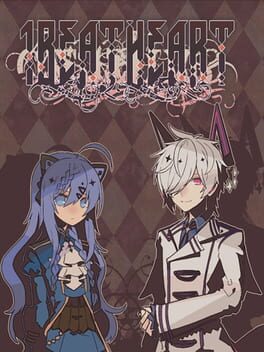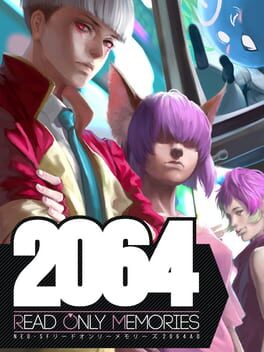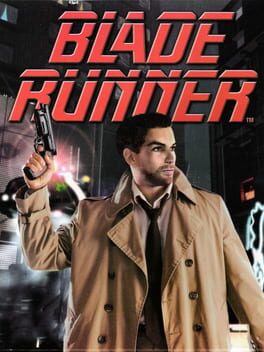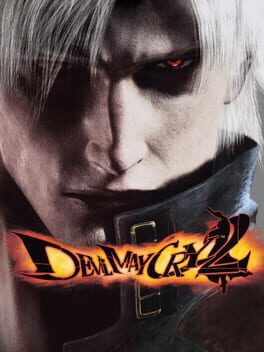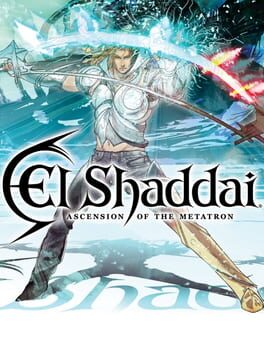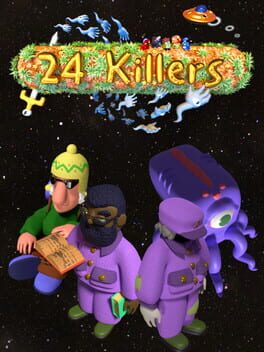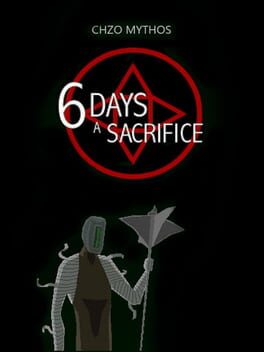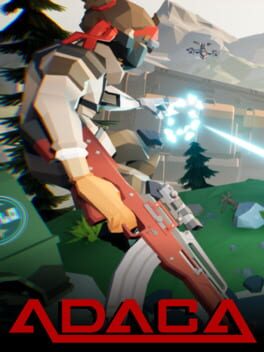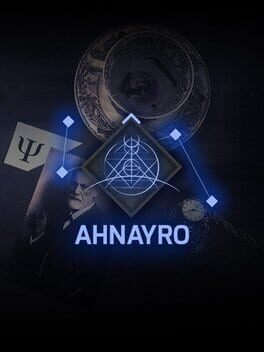frogfarmer38
18 reviews liked by frogfarmer38
Bomb Rush Cyberfunk
2023
My first thought was that Bomb Rush Cyberfunk was just going to be a straight spiritual successor to Jet Set Radio Future (which would have been a letdown considering my three weeks of original Jet Set Radio prep), but I'm pleasantly surprised by the blend of mechanics presented! In reality, Bomb Rush Cyberfunk takes the overall structure and aesthetic from Future while borrowing more heavily from original Jet Set Radio's tight level design and intricate scoring mechanics, and dare I say, actually improves upon certain aspects. It does have a few underdeveloped features as a result of its experimentation, but overall, not a bad first attempt by Team Reptile!
One issue that apparently escaped my notice the first time around (I replayed Future recently just to confirm this) was that Future's extremely linear and stretched-out levels resulted in tons of backtracking upon missing objectives/falling off the stage, and led to fairly rigid approaches that really tried my patience upon additional loops. This is fortunately not the case with Bomb Rush Cyberfunk: levels are generally a lot more open with many more shortcuts and are spaced apart carefully to where traversal feels much more free-form. It more closely resembles original Jet Set Radio, especially when you consider how its momentum mechanics complement this design. Future made the speed fairly easy to obtain: jump onto a rail regardless of your momentum, then keep mashing trick to accelerate and never slow down. On the other hand, original Jet Set Radio became well-known for how slow your character would move about unless you actively utilized rails and grindable walls to speed up, and Bomb Rush Cyberfunk takes a modern twist: you need to maintain momentum by either rail grinding and leaning into corners for speed boosts, or by using grounded manuals combined with boost (refreshed from performing tricks) to retain speed.
The momentum mechanics go hand-in-hand with the game's combo system. After thoroughly exploring levels to spray graffiti spots for "rep" and completing subsequent score and movement-tech challenges from opposing crew members, your crew must finally confront opposing crews in a crew battle, outscoring them with trick combos in their own territory. The scoring and trick system improvises upon both original Jet Set Radio and Future: in both games, the safest way to score trick points was abusing infinite grind loops and repeating the same tricks/movement over and over. However, Bomb Rush Cyberfunk turns this on its head: you don't get tons of points for doing the same tricks ad-nauseam (since trick value decreases and eventually levels off when used more and more). Instead, the main key to getting points is increasing the multiplier by utilizing unique features of the stage: that is, leaning into tight corners on grindable rails, wall-riding billboards, and going up half-pipe ramps (which are improved over the original game since you can manual up ramps and then air boost off into manuals/rail and wall-grinds, so they can function as part of a combo). The key word is "unique," since utilizing the same set-piece in a held combo will not give additional multipliers, and the same goes for graffiti spots that can now also be resprayed as one-time trick bonuses during continuous combos. As a result, the trick and multiplier staling incentivizes players to fully explore and utilize every set-piece present upon the open stages to create massive combos, made easier thanks to the mid-air dash (which also lets you alter airborne momentum once) and the manual. The only downside here is that the game's circumstances never become difficult enough to necessitate this trick optimization; the story crew battles are pretty easy and I was leapfrogging them using the above strategy (i.e. while other crews were floundering around several hundred thousand, I was well beyond a couple million in score), so unless players are trying to crack the tougher post-game score barriers for optional characters/achievements, they may never need to lean on these strategies at all.
The lack of difficulty serves as a microcosm of this game's unfortunate trend: Bomb Rush Cyberfunk certainly innovates upon many features from the Jet Set Radio games, but I find a few to be undercooked or lacking in execution. The combat's one example: it's not a bad idea in theory (using tricks to both deal damage and maintain score/momentum) and in fact has been proposed before, but its implementation leaves something to be desired. Attacking enemies feels like it has little impact because of the muffled sound-effects, akin to slapping a wet sock on a table. Also, most enemies can be defeated with a single grounded attack into an immediate "corkscrew" jump and then spray-painted in the air. While this graffiti coup de grâce never gets old, it does feel quite difficult in practice comboing in and out of this linearizing technique (since you need to be standing and off your skates to execute, breaking any combo potential), so combat never really flows and the mandatory combat sections in-story feel somewhat superfluous.
Adjacent to this is the heat system, a spin on original Jet Set Radio's enemy escalation during story stages. As your character goes about spraying graffiti, police forces begin to spawn in tougher waves: for example, wave one consists of simple grounded officers with batons and pistols, wave two activates turrets that home-in on the player with chains and slow their movement, and wave three brings in armored forces that can block attacks. I found most of these enemies to be mere nuisances: you can easily skate around and dodge most attacks (except for the turrets, which can be easily disabled with a single attack + spray), and since enemies can't be easily comboed for points and will respawn continuously upon defeat anyways, it's best to just ignore them as is. Again, this is fairly similar to original Jet Set Radio's strategy of outmanuevering enemies since foes there were active time sinks, so this doesn't bother me greatly. Unfortunately, this creates friction with Bomb Rush Cyberfunk's exploration, and not just in the sense that enemies will impede progress. The game requires you to swap between the three different types of movestyle for their different abilities: skateboards can ride on extendable fire hydrants to extend them vertically and reach heights, inline skates can skid on glass to shatter specific ceilings, and bikes can open special garage doors. The only way to switch between characters/movestyles is to go to checkerboard tiles and dance, but the game prohibits switching when there's "too much heat." Thus, you have to de-escalate the heat gauge by entering orange porta-potties (unmarked on the map, so hopefully you remember their locations!). However, they also lock up after a single use, so players have to either outright leave the stages or find a different porta-potty elsewhere to reopen old porta-potties for enemy despawning. I think this could have easily been improved if the heat gauge slowly decreased over time from successful enemy evasion.
Even with my criticisms, Bomb Rush Cyberfunk was definitely worth the three year wait. The story isn't anything mindblowing, but it's got some nice twists that are conveyed via these surreal platforming sequences that are a cross between the time rifts from A Hat in Time and a Psychonauts fever dream. I'm pleasantly surprised by a good chunk of the soundtrack too: Hideki Naganuma's three contributions are the obvious highlights, but other tracks like 2Mello's I Wanna Kno and Sebastian Knight's Feel the Funk more than hold their own weight. It's a good mix of upbeat sampledelia hip-hop and chill ambient tunes, with my only real complaint being the lack of guitar-heavy rock tracks like Magical Girl or Statement of Intent... RIP Guitar Vader. Finally, I more than got my playtime's worth out of 100%ing the game, considering all the hidden areas and collectibles to find and just how much fun I had figuring out new ways to string together ridiculous combos. Despite the game's various areas of improvement, I find Bomb Rush Cyberfunk to be a fantastic fresh take upon a beloved franchise that isn't just a homage to Jet Set Radio, but a love letter to classic Y2K counter-culture and skating games as a whole. If you're not a prior fan of the franchise, this might not be the game to change your mind, but if you are, then I see no reason why you wouldn't find some enjoyment out of it. It's no surprise that fans absolutely ate this up, with excitement for the franchise reaching a new fever pitch. Your move, SEGA. Let's see if you guys still understand the concept of love.
One issue that apparently escaped my notice the first time around (I replayed Future recently just to confirm this) was that Future's extremely linear and stretched-out levels resulted in tons of backtracking upon missing objectives/falling off the stage, and led to fairly rigid approaches that really tried my patience upon additional loops. This is fortunately not the case with Bomb Rush Cyberfunk: levels are generally a lot more open with many more shortcuts and are spaced apart carefully to where traversal feels much more free-form. It more closely resembles original Jet Set Radio, especially when you consider how its momentum mechanics complement this design. Future made the speed fairly easy to obtain: jump onto a rail regardless of your momentum, then keep mashing trick to accelerate and never slow down. On the other hand, original Jet Set Radio became well-known for how slow your character would move about unless you actively utilized rails and grindable walls to speed up, and Bomb Rush Cyberfunk takes a modern twist: you need to maintain momentum by either rail grinding and leaning into corners for speed boosts, or by using grounded manuals combined with boost (refreshed from performing tricks) to retain speed.
The momentum mechanics go hand-in-hand with the game's combo system. After thoroughly exploring levels to spray graffiti spots for "rep" and completing subsequent score and movement-tech challenges from opposing crew members, your crew must finally confront opposing crews in a crew battle, outscoring them with trick combos in their own territory. The scoring and trick system improvises upon both original Jet Set Radio and Future: in both games, the safest way to score trick points was abusing infinite grind loops and repeating the same tricks/movement over and over. However, Bomb Rush Cyberfunk turns this on its head: you don't get tons of points for doing the same tricks ad-nauseam (since trick value decreases and eventually levels off when used more and more). Instead, the main key to getting points is increasing the multiplier by utilizing unique features of the stage: that is, leaning into tight corners on grindable rails, wall-riding billboards, and going up half-pipe ramps (which are improved over the original game since you can manual up ramps and then air boost off into manuals/rail and wall-grinds, so they can function as part of a combo). The key word is "unique," since utilizing the same set-piece in a held combo will not give additional multipliers, and the same goes for graffiti spots that can now also be resprayed as one-time trick bonuses during continuous combos. As a result, the trick and multiplier staling incentivizes players to fully explore and utilize every set-piece present upon the open stages to create massive combos, made easier thanks to the mid-air dash (which also lets you alter airborne momentum once) and the manual. The only downside here is that the game's circumstances never become difficult enough to necessitate this trick optimization; the story crew battles are pretty easy and I was leapfrogging them using the above strategy (i.e. while other crews were floundering around several hundred thousand, I was well beyond a couple million in score), so unless players are trying to crack the tougher post-game score barriers for optional characters/achievements, they may never need to lean on these strategies at all.
The lack of difficulty serves as a microcosm of this game's unfortunate trend: Bomb Rush Cyberfunk certainly innovates upon many features from the Jet Set Radio games, but I find a few to be undercooked or lacking in execution. The combat's one example: it's not a bad idea in theory (using tricks to both deal damage and maintain score/momentum) and in fact has been proposed before, but its implementation leaves something to be desired. Attacking enemies feels like it has little impact because of the muffled sound-effects, akin to slapping a wet sock on a table. Also, most enemies can be defeated with a single grounded attack into an immediate "corkscrew" jump and then spray-painted in the air. While this graffiti coup de grâce never gets old, it does feel quite difficult in practice comboing in and out of this linearizing technique (since you need to be standing and off your skates to execute, breaking any combo potential), so combat never really flows and the mandatory combat sections in-story feel somewhat superfluous.
Adjacent to this is the heat system, a spin on original Jet Set Radio's enemy escalation during story stages. As your character goes about spraying graffiti, police forces begin to spawn in tougher waves: for example, wave one consists of simple grounded officers with batons and pistols, wave two activates turrets that home-in on the player with chains and slow their movement, and wave three brings in armored forces that can block attacks. I found most of these enemies to be mere nuisances: you can easily skate around and dodge most attacks (except for the turrets, which can be easily disabled with a single attack + spray), and since enemies can't be easily comboed for points and will respawn continuously upon defeat anyways, it's best to just ignore them as is. Again, this is fairly similar to original Jet Set Radio's strategy of outmanuevering enemies since foes there were active time sinks, so this doesn't bother me greatly. Unfortunately, this creates friction with Bomb Rush Cyberfunk's exploration, and not just in the sense that enemies will impede progress. The game requires you to swap between the three different types of movestyle for their different abilities: skateboards can ride on extendable fire hydrants to extend them vertically and reach heights, inline skates can skid on glass to shatter specific ceilings, and bikes can open special garage doors. The only way to switch between characters/movestyles is to go to checkerboard tiles and dance, but the game prohibits switching when there's "too much heat." Thus, you have to de-escalate the heat gauge by entering orange porta-potties (unmarked on the map, so hopefully you remember their locations!). However, they also lock up after a single use, so players have to either outright leave the stages or find a different porta-potty elsewhere to reopen old porta-potties for enemy despawning. I think this could have easily been improved if the heat gauge slowly decreased over time from successful enemy evasion.
Even with my criticisms, Bomb Rush Cyberfunk was definitely worth the three year wait. The story isn't anything mindblowing, but it's got some nice twists that are conveyed via these surreal platforming sequences that are a cross between the time rifts from A Hat in Time and a Psychonauts fever dream. I'm pleasantly surprised by a good chunk of the soundtrack too: Hideki Naganuma's three contributions are the obvious highlights, but other tracks like 2Mello's I Wanna Kno and Sebastian Knight's Feel the Funk more than hold their own weight. It's a good mix of upbeat sampledelia hip-hop and chill ambient tunes, with my only real complaint being the lack of guitar-heavy rock tracks like Magical Girl or Statement of Intent... RIP Guitar Vader. Finally, I more than got my playtime's worth out of 100%ing the game, considering all the hidden areas and collectibles to find and just how much fun I had figuring out new ways to string together ridiculous combos. Despite the game's various areas of improvement, I find Bomb Rush Cyberfunk to be a fantastic fresh take upon a beloved franchise that isn't just a homage to Jet Set Radio, but a love letter to classic Y2K counter-culture and skating games as a whole. If you're not a prior fan of the franchise, this might not be the game to change your mind, but if you are, then I see no reason why you wouldn't find some enjoyment out of it. It's no surprise that fans absolutely ate this up, with excitement for the franchise reaching a new fever pitch. Your move, SEGA. Let's see if you guys still understand the concept of love.
BattleBit Remastered
2023
these guys are basically milking on what dice had to do for 10 fucking years, prox chat and "modern" weapons, that feel when you spawn in and all you hear is fortunate son and through fire and flames on full blast along with your fellow teammates screaming and channeling their inner generation kill character, 2014 is back, jump on it before the magic ends
edit:sadly the magic ended
edit:sadly the magic ended
Friends vs. Friends
2023
Hi-Fi Rush
2023
Hrot
2021
this seems like it's made specifically for the weirdos who liked the more sparse and offputting aspects of the original Quake. you get way more rockets than rifle rounds, and even though there are more than 50 enemy types, most of what you face are the main enemy archetypes from Quake. its main strength is mixing this very american design philosophy with a particularly culturally specific representation of 80s czechoslovakia (mainly in the architecture), which makes for a strange mix.
those old "slavjank" titles are usually focused on verisimilitude - even if it's oddly represented by the mechanics or structure - while the Quake formula begs for maximum abstraction. Hrot tries playing both sides, but ends up being its own perplexing middle ground. at least it's an interesting conflict to see being wrestled with throughout the 3 episodes, which become gradually more lost until the last few levels from the 3rd episode transform into small, sepia dollhouse arenas.
those old "slavjank" titles are usually focused on verisimilitude - even if it's oddly represented by the mechanics or structure - while the Quake formula begs for maximum abstraction. Hrot tries playing both sides, but ends up being its own perplexing middle ground. at least it's an interesting conflict to see being wrestled with throughout the 3 episodes, which become gradually more lost until the last few levels from the 3rd episode transform into small, sepia dollhouse arenas.
Scorcher
1996
X-COM: UFO Defense
1994
First of all, you need OpenXcom, it's free and it runs much more smoothly than DOSBox while also providing extra settings, quality of life improvements and bug fixing for issues still present in the final official build. This game is DRM free, but if you want to run OpenXcom from Steam like I do just delete the Dosbox executable in the game's folder and rename the OpenXcom one as "dosbox".
X-COM: UFO Defense is a game about fighting back an alien invasion, the aforementioned invaders don't hold back and you'll most likely lose a large amount of rookie soldiers to the most basic enemies during the first couple of months. The aliens play dirty too, relying on terrorism and infiltration in addition to their already formidable brute strength.
As the commander of X-COM, you must unearth the secrets of their technology, set up bases around the world, manufacture weapons of immense power and rain death over the godless alien savages that seek to enthrall humanity. Failure means a fate worse than death so no resource can be spared and human life is merely an instrument you can repeatedly purchase for $40.000.
I love this game, it's so tense, specially at the beginning, but that only makes it all the more satisfying when the tables turn. The alien forms are varied and even the most basic ones can be very dangerous, the encounters are procedurally generated to keep things fresh, and there's always a new facility to build, a new research to start or something to manufacture.
The combat is very meticulous in the sense that you have a high degree of control over your troops, the game uses time units which can be spent freely during the player's turn, there isn't a hard "move + action" limit like so many strategy games have and it's possible to do all kinds of creative stuff with inventory management.
A lot of people have nostalgia for this title, but this game is older than me so nostalgia is not a factor. I think X-COM is still as good as it was back in 1994 and a must play for strategy fans, my only qualm about it is that this version is just plain old DOSBox which is far from ideal, but that can be fixed as I pointed out before. Fantastic game overall.
X-COM: UFO Defense is a game about fighting back an alien invasion, the aforementioned invaders don't hold back and you'll most likely lose a large amount of rookie soldiers to the most basic enemies during the first couple of months. The aliens play dirty too, relying on terrorism and infiltration in addition to their already formidable brute strength.
As the commander of X-COM, you must unearth the secrets of their technology, set up bases around the world, manufacture weapons of immense power and rain death over the godless alien savages that seek to enthrall humanity. Failure means a fate worse than death so no resource can be spared and human life is merely an instrument you can repeatedly purchase for $40.000.
I love this game, it's so tense, specially at the beginning, but that only makes it all the more satisfying when the tables turn. The alien forms are varied and even the most basic ones can be very dangerous, the encounters are procedurally generated to keep things fresh, and there's always a new facility to build, a new research to start or something to manufacture.
The combat is very meticulous in the sense that you have a high degree of control over your troops, the game uses time units which can be spent freely during the player's turn, there isn't a hard "move + action" limit like so many strategy games have and it's possible to do all kinds of creative stuff with inventory management.
A lot of people have nostalgia for this title, but this game is older than me so nostalgia is not a factor. I think X-COM is still as good as it was back in 1994 and a must play for strategy fans, my only qualm about it is that this version is just plain old DOSBox which is far from ideal, but that can be fixed as I pointed out before. Fantastic game overall.
Vampire Survivors
2021
not enough people mention how much of a treat this game is if you're a big fan of Castlevania
it's amusing how much trouble Bloodstained: Curse of the Moon does to invent its own versions of all the iconography when Vampire Survivors just borrows everything, bibles are bibles still, holy water is Santa Water, etc, but also goes through a lot of trouble to make sure every enemy and character still have their own flavor
and I'd love to see this developer make a game with all the Vampire Survivors iconography they've implemented but just make a Castlevania clone this time, make a Classicvania or Metroidvania-styled game with all these interesting takes on the old favorites, and make it tough as nails to prove wrong all the people who say that you "don't know how" to make a hard game, and you can make it a bit roguey still like Dead Cells or something if you're trying to justify it as still being distinct from Castlevania
I do think there are certainly moments of challenge in Vampire Survivors, maybe I'm just not good at multitasking but I can't completely tune out while playing this
There are bosses and enemies that restrict your movement like memorably the one you fight while fleeing from rising water
And it's not just "walk in a direction", there are weapons you can fire in a direction of your choosing, therefore aim does matter a lot of the time, this game is stripped-down but there's a reason people keep making the comparison to twin-stick shooters
Skip the slot machine animations with the circle button, you don't want the game to jerk you off that much, it's a bit much already even if you skip them
On Steam Deck I force a 1920x1200 resolution because the sort of downscaling that results in is easier on the pixel art than what appears to be uneven nearest-neighbor scaling by default for 1280x800
have they ever said why the game only uses a 16:10 resolution? maybe for playfield legibility as opposed to 16:9? it befits the Steam Deck perfectly but results in awkward black bars for everything else
Decent game for like 20 hours or so, idk if I'll continue it now that I've mostly ran out of new maps, enjoy in moderation and it's better on a handheld where it doesn't feel like it's sucking away time because you're sneaking in a couple games
by the way, you diskhorse fiends have gotta calm the fuck down, I don't know what it is about this game that brings such intense emotional responses out of people, maybe it's their latent bigotry towards Italians...
And where the fuck is Bisconte Draculó? You seriously telling me you never get to fight the guy on the cover?
rated 4 stars for Schedule IV
it's amusing how much trouble Bloodstained: Curse of the Moon does to invent its own versions of all the iconography when Vampire Survivors just borrows everything, bibles are bibles still, holy water is Santa Water, etc, but also goes through a lot of trouble to make sure every enemy and character still have their own flavor
and I'd love to see this developer make a game with all the Vampire Survivors iconography they've implemented but just make a Castlevania clone this time, make a Classicvania or Metroidvania-styled game with all these interesting takes on the old favorites, and make it tough as nails to prove wrong all the people who say that you "don't know how" to make a hard game, and you can make it a bit roguey still like Dead Cells or something if you're trying to justify it as still being distinct from Castlevania
I do think there are certainly moments of challenge in Vampire Survivors, maybe I'm just not good at multitasking but I can't completely tune out while playing this
There are bosses and enemies that restrict your movement like memorably the one you fight while fleeing from rising water
And it's not just "walk in a direction", there are weapons you can fire in a direction of your choosing, therefore aim does matter a lot of the time, this game is stripped-down but there's a reason people keep making the comparison to twin-stick shooters
Skip the slot machine animations with the circle button, you don't want the game to jerk you off that much, it's a bit much already even if you skip them
On Steam Deck I force a 1920x1200 resolution because the sort of downscaling that results in is easier on the pixel art than what appears to be uneven nearest-neighbor scaling by default for 1280x800
have they ever said why the game only uses a 16:10 resolution? maybe for playfield legibility as opposed to 16:9? it befits the Steam Deck perfectly but results in awkward black bars for everything else
Decent game for like 20 hours or so, idk if I'll continue it now that I've mostly ran out of new maps, enjoy in moderation and it's better on a handheld where it doesn't feel like it's sucking away time because you're sneaking in a couple games
by the way, you diskhorse fiends have gotta calm the fuck down, I don't know what it is about this game that brings such intense emotional responses out of people, maybe it's their latent bigotry towards Italians...
And where the fuck is Bisconte Draculó? You seriously telling me you never get to fight the guy on the cover?
rated 4 stars for Schedule IV
Speedy Eggbert
1998
Multiple sources on the internet say that Serj Tankian from System of a Down conceptualized this game but I think it might just be one of those lies people repeat
Older shareware games like this, as a child, had a much trippier vibe than I was used to from the relative comforts of Nintendo and Sony
They would make me feel a little strange, a little uncomfortable, a little alone
Speedy Eggbert is all of those things, there is a frightening emptiness to it, but calm, and incidential
As in, it just turned out like that, they were just trying to make A Game, thinking it's weird is on me
Feels like the kind of game that aliens from another solar system would make if they played and were subsequently inspired by Super Mario Bros as a result of an intergalactic cultural exchange
Older shareware games like this, as a child, had a much trippier vibe than I was used to from the relative comforts of Nintendo and Sony
They would make me feel a little strange, a little uncomfortable, a little alone
Speedy Eggbert is all of those things, there is a frightening emptiness to it, but calm, and incidential
As in, it just turned out like that, they were just trying to make A Game, thinking it's weird is on me
Feels like the kind of game that aliens from another solar system would make if they played and were subsequently inspired by Super Mario Bros as a result of an intergalactic cultural exchange
63 lists liked by frogfarmer38
by ResidentMelville |
254 Games
by MendelPalace |
100 Games
by vehemently |
22 Games
by Clorth |
102 Games
by ouroborostxt |
1292 Games
by MendelPalace |
203 Games
by MendelPalace |
334 Games
